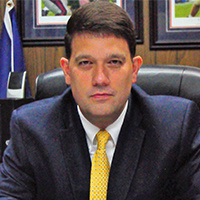Hickory Flat DUI-DWI Lawyer, Mississippi
Sponsored Law Firm
-
 x
x

Click For More Info:
-
Bryan Law Firm, PLLC
5699 Getwell Road Build S Suite 1 Southaven, MS 38672» view mapDivorce & Family Law Where Every Client Matters
Let Bryan Law Firm, PLLC handle your Family Law, Estate and Criminal Defense needs today!
800-925-5121
Tommy W. Defer
✓ VERIFIEDAccident & Injury, Divorce & Family Law, Criminal, Estate, DUI-DWI
The Law Office of Tommy W. Defer was established in December 2003, and is located in the City of Water Valley, Mississippi (just 20 miles South of Oxf... (more)
Robert Sneed Laher
Criminal, DUI-DWI, Divorce, Car Accident, Litigation
Status: In Good Standing Licensed: 28 Years
 Kacy Bryan Southaven, MS
Kacy Bryan Southaven, MS AboutBryan Law Firm, PLLC
AboutBryan Law Firm, PLLC

